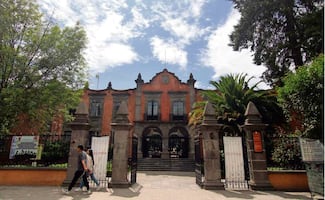Más Información

Harfuch sostiene llamada telefónica con el ministro de Seguridad canadiense; acuerdan fortalecer Plan de Acción Canadá–México

Corte perfila iniciar 2026 con tema del aborto; plantea anular reducción de 12 a 6 semanas para interrumpir el embarazo

Jueza cancela audiencia del caso María Amparo Casar; FGR deberá continuar acusación ante juez del Reclusorio Norte
The University of Granada will take part in the Chicxulub crater study in Yucatán, a 110 mile-wide hole (180 km-wide) caused by an asteroid collision which may have led to the extinction of dinosaurs.
Francisco Javier Rodríguez-Tovar, professor of the Department of Stratigraphy and Paleontology of this university, is one of two Spaniards who will be part of the international scientific committee to study the most recent surveys carried out in the crater.
According to the studies carried out so far, the impact of the asteroid is compared to the power of a billion atomic bombs.
Rodríguez-Tovar was named member of the “Science Party” that will study the reports of the Expedition 364: Chicxulub drilling the K-Pg impact crater.
The expedition, carried out between April and May, involved drilling nearly 5,000 feet beneath the seabed from an offshore platform to take core samples.
"The impact caused the extinction of some 75 percent of species that existed in that period," said Dr Jaime Urrutia-Fucugauchi, of the Institute of Geophysics at the National Autonomous University of Mexico.
The Expedition 364 is led by Prof. Joanna Morgan (Imperial College London, UK) and Prof. Sean Gulick (the University of Texas at Austin, USA).
Scientists from the United States, Mexico, Japan, Australia, Canada, China and Europe also participate in the study.
Noticias según tus intereses
[Publicidad]
[Publicidad]











